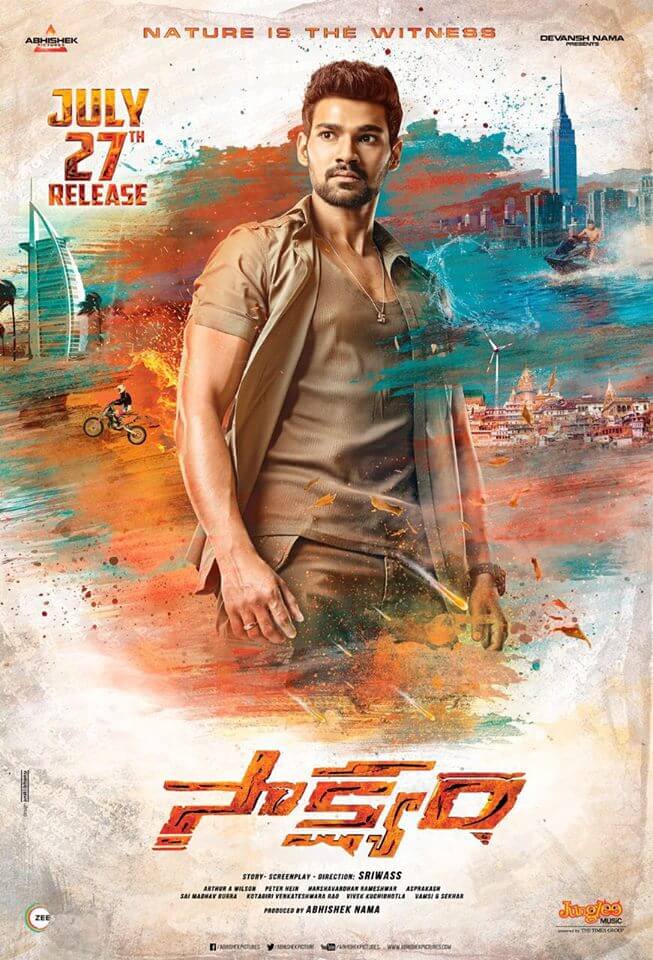Is the film industry in India evolving to meet global standards? The release of Court in Telugu, a full-length feature directed by Ram Jagadeesh, certainly suggests so. This cinematic masterpiece not only redefines the genre but also sets a benchmark for storytelling and technical excellence. With stellar performances from Priyadarshi Pulikonda, Harsh Roshan, and Sridevi, the movie has been nothing short of a revelation since its premiere on March 14, 2025.
Court, set against the backdrop of contemporary India, delves into themes that resonate with audiences across demographics. Ram Jagadeesh's direction brings out nuances that are both subtle and powerful, creating an engaging narrative that holds viewers captive for its entire runtime of 149 minutes. The screenplay, penned meticulously by Jagadeesh himself alongside Karthikeya Sreenivass and Vamsidhar Sirigiri, is a testament to their deep understanding of human emotions and societal structures. Produced under the banner of Wall Poster Cinema by Prashanti Tipirneni, this venture was destined to make waves in the competitive world of cinema.
| Bio Data | |
|---|---|
| Name | Ram Jagadeesh |
| Date of Birth | January 3, 1987 |
| Place of Birth | Vijayawada, Andhra Pradesh, India |
| Profession | Film Director, Screenwriter, Cinematographer |
| Education | Bachelor of Arts in Film Studies, University of Hyderabad |
| Career Highlights | Known for directing critically acclaimed films like Court (2025) and The Silent Echo (2022). |
| Awards | National Film Award for Best Direction (2023) |
| Reference Link | IMDb Profile |
The cinematography by Dinesh Purushothaman adds another layer of brilliance to the film, capturing the essence of each scene with precision and artistry. The editing by Karthika Srinivas ensures a seamless flow, enhancing the overall impact of the narrative. Vijai Bulganin’s music score complements the visuals perfectly, elevating the emotional depth of pivotal moments. Collectively, these elements contribute to making Court one of the most talked-about releases of 2025.
In the realm of online streaming platforms, Movierulz 2024 stands as a significant player offering access to various regional language films including Kannada, Telugu, Tamil, Malayalam, Bengali, and others. While it provides users with the convenience of downloading movies free of cost, legal implications surrounding such practices continue to spark debates within the industry. As technology advances, finding equilibrium between accessibility and copyright protection remains crucial for sustainable growth in digital content distribution.
Meanwhile, Netflix continues to expand its portfolio with original series such as Masters of the Universe: Revolution, which premiered earlier this year. Featuring iconic voices like William Shatner and Mark Hamill, this anime adaptation appeals to fans worldwide who appreciate high-quality animation combined with compelling storylines. Such ventures highlight how international streaming giants invest heavily in diverse genres catering to varied audience preferences globally.
Another noteworthy mention is Daaku Maharaaj, a thrilling action drama starring veteran actor Balakrishna alongside newcomers Pragya Jaiswal and Bobby Deol. Directed by Bobby Kolli, this Telugu film captures the imagination of viewers through its gripping plot and larger-than-life sequences. Released around the same period as Court, both films reflect different facets of modern-day filmmaking – one focusing on intricate courtroom drama while the other leans towards adrenaline-pumping escapades.
As we delve deeper into the analysis of these productions, it becomes evident that they represent distinct yet equally important aspects of Indian cinema today. From thought-provoking narratives addressing social issues to entertainment-driven blockbusters designed purely for mass appeal, there exists something for everyone within this vast landscape. Moreover, collaborations between talented individuals across departments ensure continuous innovation leading to groundbreaking results time after time.
Looking ahead, the future appears promising for filmmakers willing to experiment with unconventional ideas backed by solid execution strategies. Audiences increasingly seek authenticity over spectacle alone; hence, creators must strive to deliver meaningful content capable of leaving lasting impressions. By doing so, they can inspire change not just within themselves but society at large too.
Ultimately, whether you prefer watching critically acclaimed dramas or indulging in escapist adventures, the current state of the Indian film industry offers plenty of choices satisfying diverse tastes. What matters most now is supporting legitimate channels promoting ethical practices ensuring long-term sustainability without compromising artistic integrity.



